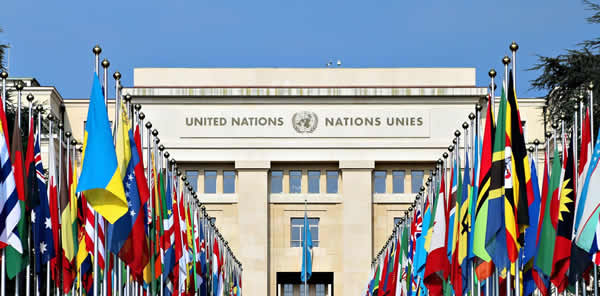
There is no global organisation that works to alleviate the suffering and pain of humanity better than the United Nations (UN).
Founded in 1945, the UN has grown from the original 51 Member States in 1945 to the current 193. The UN and its work are guided by the purposes and principles contained in its founding Charter. The UN has evolved over the years to keep pace with a rapidly changing world.
United Nations Day, which was commemorated yesterday, marks the anniversary of the entry into force in 1945 of the UN Charter.
Today, the urgency for all countries to come together to fulfil the promise of nations united, has rarely been greater. UN Day, celebrated every year, offers the opportunity to amplify the common agenda and reaffirm the purposes and principles of its Charter that have guided the world for the past 77 years.
The Secretary General, Antonio Guterres, in a message to mark the day, said the United Nations was the product of hope; the hope and resolve following the Second World War to move beyond global conflict to global cooperation.
However, he said: “Today, our organisation is being tested like never before and assures that the United Nations was made for moments like this.”
Now, more than 75 years later, the United Nations is still working to maintain international peace and security, give humanitarian assistance to those in need, protect human rights and uphold international law.
At the same time, the United Nations is doing a new work not envisioned for it in 1945 by its founders. The United Nations has set sustainable development goals (SDGs) for 2030, in order to achieve a better and more sustainable future for us all.
Today, the United Nations assists and protects 103 million people fleeing war, famine and persecution. It provides food and assistance to 128 million people in 80 countries, supplies vaccines to 45 per cent of the world’s children, helps save three million lives a year; keeps peace with 87,000 peacekeepers in 12 operations around the world, and protects and promotes human rights globally through 80 treaties and declarations.
The United Nations also coordinates a US$46 billion appeal for the humanitarian needs of 202 million people, uses diplomacy to prevent conflict, assists some 50 countries a year with their elections and supports over 30 million women a year with sexual and reproductive health services.
While conflict resolution and peacekeeping continue to be among its most visible efforts, the UN, along with its specialised agencies, is also engaged in a wide array of activities to improve people’s lives around the world from disaster relief, through education and advancement of women, to peaceful uses of atomic energy.
In Africa, the UN system plays a crucial role in coordinating assistance of all kinds to help Africa help itself. From promoting the development of democratic institutions, to the establishment of peace between warring nations, the UN is present on the ground, supporting economic and social development, and the promotion and protection of human rights.
Ghana was admitted to the United Nations on March 8, 1957, two days after it had gained independence from Britain.
Ghanaian men and women have served as United Nations peacekeepers since the early 1970s, participating in operations that stretched from the Sinai to the African continent.
As a country, we are now among the top 10 contributors to UN peacekeeping, with nearly 3,000 personnel serving on eight missions. Ghana first deployed troops as part of a UN peacekeeping operation set up to help restore calm and order in the then Republic of Congo.
The UN helps Ghana by promoting growth with equity in order to lift people out of poverty. The United Nations Development Programme and other agencies have been propelling UN “Delivering as One” and providing a coordinated response to Ghana’s national priorities.
The Daily Graphic commends the United Nations for the numerous achievements it has chalked up over the years and also its impactful interventions.
As we applaud the United Nations for making the world a better place to live in, we urge it to maintain its focus and continue to spread hope across the world.
Source: Daily Graphic























